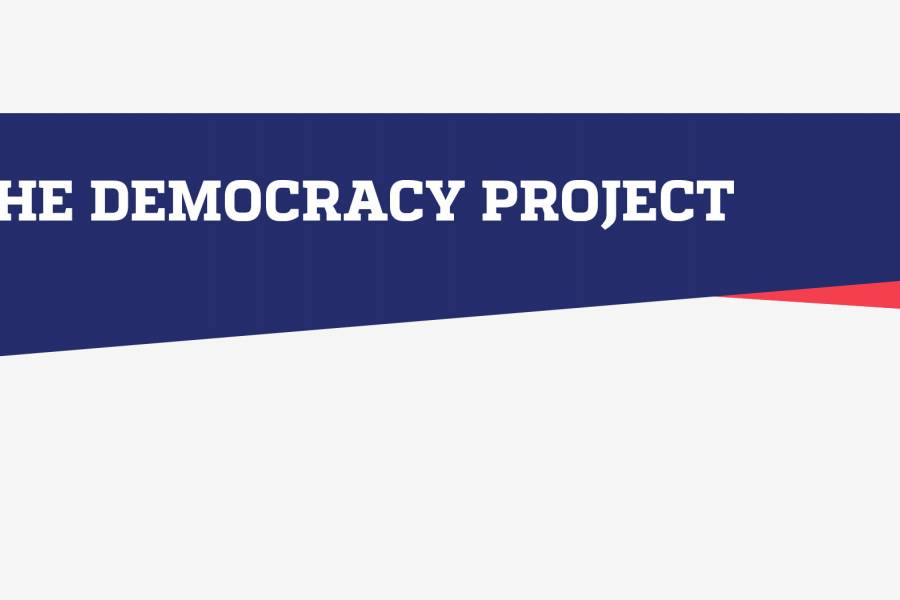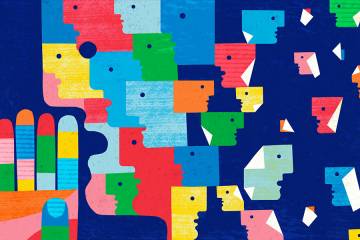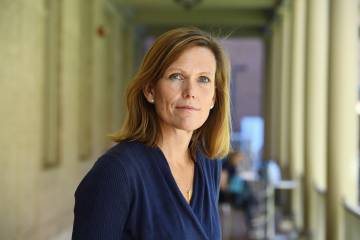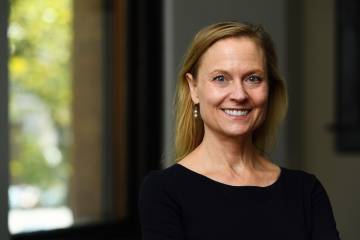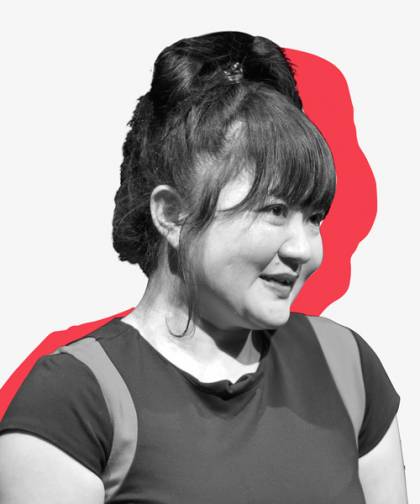
Image caption:Du Yun, born and raised in Shanghai and currently based in New York, is a composer, multi-instrumentalist, performance artist, activist, and new music curator. A professor of composition at the Peabody Institute, Du Yun also serves as a distinguished visiting professor at the Shanghai Conservatory of Music. Du Yun’s second opera, Angel’s Bone, won a Pulitzer Prize for music in 2017. In 2018, she was named a Guggenheim Fellow, the same year the Carnegie Foundation honored her as one of 38 Great Immigrants. The Grammy-nominated artist’s latest album is A Cockroach's Tarantella.
Image credit: Courtesy of Du Yun
Since I've been in the United States, I feel like every presidential election has been talked about as the most important one we've ever faced. I'm not being cynical, but it does feel that every election is the most crucial one for its own reasons. My hope for democracy is that we can learn from that history and move forward to encourage sustained evolvement, rather than thinking solely in terms of victory. When you talk about victory, you are actually oppressing and suppressing other voices. And that separates us all.
How we rebuild is what I'm interested in. How to regain our trust in so many different aspects of our lives. We talk a lot about our problems; I want to hear about the strategies we need after the election.
There are reasons why we have Black Lives Matter, the #MeToo movement, and so many others. Our problems do not have one singular narrative. Can we dream together to have a more equitable future? I would like to see us living in actionable possibilities grown out of these movements.
When I took my U.S. citizenship test, I remember learning about the Constitution. I was in my 30s, and a recent immigrant. When I first read the document, I almost wanted to cry because it is such a beautiful concept and has poetic language—it's a piece of literature, really. It's something that makes me want to immigrate. But it's a documentation of what the Founding Fathers had as an idea.
People, though, are complicated. They have so many layers of history and conflict within them, and that makes things like democracy really difficult to understand. When people say an immigrant comes here for a better life, a "better life" has so many different meanings to different people. Sometimes it can be as grand as freedom, and sometimes democracy is very specific to the magical moments of everyday life. And those things should never be taken for granted. That's why I want people to share those moments with each other, not just share their rage. We are losing sight of what is important and critical, and why we're fighting for the things that we fight for.
About The Democracy Project
The future of democracy as a system of government is increasingly uncertain. With a rise of populist forces globally and many existing democracies in regression, liberty itself seems under assault. In the United States, a diminished or warped democracy could have far-reaching repercussions for voting rights, the rule of law, education, the application of science, immigration, citizenship, and long-held societal norms we take for granted.
As we near an election in which many of the defining principles of democracy seem to hang in the balance, an array of Johns Hopkins experts will share their greatest hopes, their deepest fears, and their informed insights on the state of America's democratic experiment. Read more from The Democracy Project
Posted in Voices+Opinion, Politics+Society
Tagged democracy




